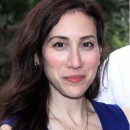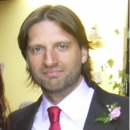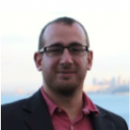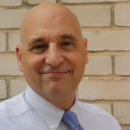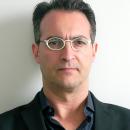Week of:
Innovating innovation in Clinical Trials
“We cannot solve our problems with the same thinking we used when we created them”. Albert Einstein
Innovation: R&D productivity in the pharmaceutical sector has been declining for a number of years due to R&D efficiency (the ability of an R&D system to translate inputs such as ideas, investments, and effort into defined outputs such as regulatory approval and commercialization) and effectiveness (the ability of the R&D system to produce outputs with certain intended and desired qualities) (Figure 1). With fewer and fewer new molecular entities (NMEs) and rising costs, the industry must act boldly to change the current R&D model across dimensions, a task that will require significant industry evolution to take into account changing strategies, processes, people, organizational structures, and funding streams. It’s time to think about new approaches to innovation.
Figure 1: Dimensions of R&D productivity

Source: “How to improve R&D productivity: the pharmaceutical industry's grand challenge” by Paul et al (2010)
“The enterprise that does not innovate inevitably ages and declines.
And in a period of rapid change such as the present…the decline will be fast”. Peter F. Drucker
New model: The “fully integrated pharmaceutical company” (FIPCO) model, where a sponsor “owns” the entire drug development process from synthesis to marketing, is still prevalent across the industry, however has become a significant obstacle to improving pharmaceutical R&D. The need for change is evident. Successful examples from other sectors, such as telecommunications, information technology, and automotive provide ideas for success. As, multinational pharmaceutical companies realize the full potential of the “open innovation model”, they are gradually adapting towards a more “networked” ecosystem of innovation, sometimes referred to as a fully integrated pharmaceutical network (FIPNet) or Virtually Integrated Pharmaceutical Company Organization (VIPCO), whereby traditional companies outsource R&D at any point in their drug development value chain. In doing so, companies exploit complementary assets outside their firm while engaging other stakeholders for distributed growth in the drug development process (Figure 2).
Figure 2: Transition from a ‘closed’ innovation model to an ‘open’ innovation model:
Most Pharmas are still using a FIPCO (closed model), but few are moving toward a FIPNET and VIPCO (open model)

Source: “From FIPCO to FIPNET to VIPCO – Say What?” by DiscoveryManagementSolutions.com (2011)
“One of the causes of the demise of empires is the inability to create or respond to innovation”. Robert M. Califf
Sanofi Case Study: In its 2009 R&D, Sanofi signaled a change in its innovation model from a “closed ” to “open” system. According to literature, Sanofi’s strategy involves a portfolio of decisions that are “centered on the real needs of patients, the development of scientific networks and openness toward outside entities to strengthen creativity, and a flexible and entrepreneurial approach to research”(Sanofi, 2012). This includes:
- External R&D PARTNERSHIPS (50% of Sanofi’s R&D projects come from collaborations), including with:
- Academia: New collaboration that brought together academia and industry to share ideas and focus on translating early research ideas into potential healthcare solutions. (The Salk Research Institute in La Jolla, CA and Harvard University (Cambridge, MA).
- Pharmas: A new model of cooperation among large pharmaceutical groups to exchange molecules their respective libraries (AstraZeneca and Merck)
- Non-profit organization: An effort to accelerate timelines and decrease development costs of life-saving vaccines with the Infectious Disease Research Institute (IDRI) and the Bill & Melinda Gates Foundation.
- Research organization (CRO): 10 years strategic R&D alliance between Sanofi and a CRO named Covenance. Covance provides Sanofi with discovery support, toxicology, chemistry, Phase I to IV, central lab, and market access service.
(B)New R&D INFRASTRUCTURE: Sanofi is restructuring R&D organizations into smaller and more independent units. Its new North America Research & Development efforts in Boston are part of the company's strategy to create a more open-innovation based model, with improved access to an adaptive labor workforce.
(C)New R&D innovation CULTURE: Sanofi is fostering cultural changes by adopting a more entrepreneurial environment for the way its R&D is conducted. This includes emulating incentive based cultures of smaller biotech companies.
(D)Expanding the R&D BUSINESS Pipeline: Sanofi is diversifying— from innovative medicines for life-threatening diseases to vaccines to address major public health issues, rare disease treatments, generics, consumer health care, and animal health business. Its move from a closed to open innovation model also raises important questions relating to ownership and control, tax structure, intellectual property, policy advocacy, patient engagement, and finance (Figure 3).
Figure 3: Sanofi case study: Findings show Sanofi’s innovation model spans five major dimensions impacting clinical trials, i.e., Research, Partnerships, Culture, Infrastructure, and Business.

Source: Clinical Trials System Project
“Innovation distinguishes between a leader and a follower”. Steve Jobs
Finding: The open model of innovation challenges the old way of pharmaceutical research. This has implications not only for the way in which R&D is done but also the financial imperatives of stakeholders in the clinical trials system. For us, a number of key questions remain: who are the winners and losers of these changing models of innovation? How does an “upstream” open model of innovation impact the “downstream” time and costs associated with clinical trials? Will a distributed model impact the culture of science or will change be subsumed by the dominant legal and regulatory architecture of R&D as we know it?

